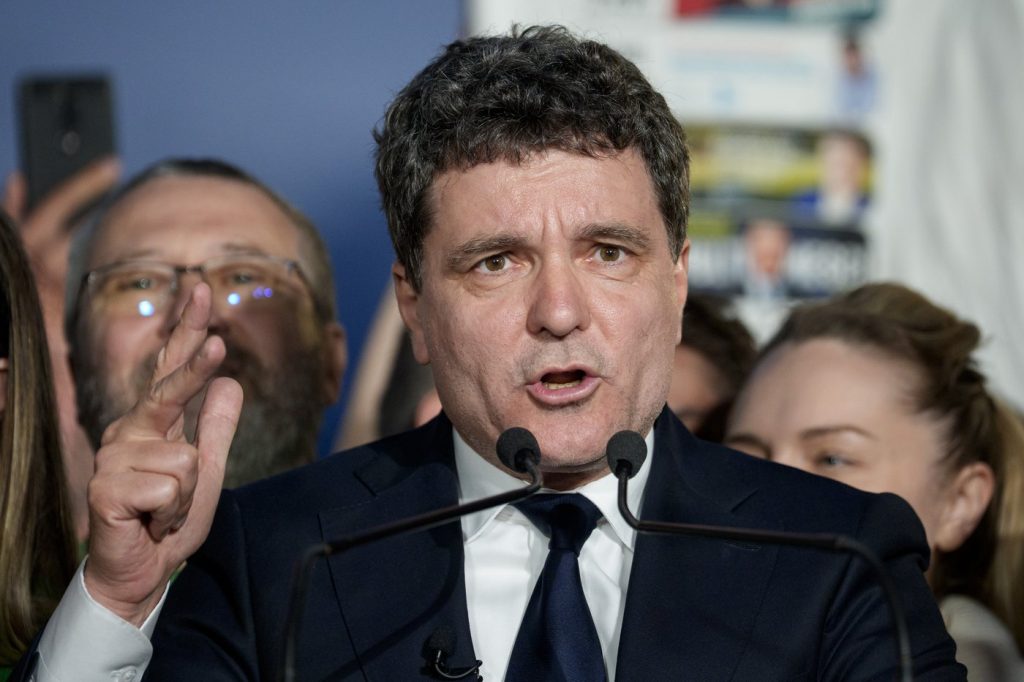BUCHAREST, Romania (AP) — An upset presidential election victory on Sunday by Nicusor Dan, a pro-European Union centrist, delivered a significant blow to the hard-right nationalist movement in Romania. Dan's win, securing 53.6% of the vote, eased concerns among the electorate about the rise of right-wing populism affecting their political landscape.
Dan's opponent, George Simion, positioned himself as a defender of conservative values, including patriotism and family, and tried to mirror the political rhetoric of U.S. President Donald Trump. This election was characterized by its geopolitical context, representing a choice between East and West for Romania, a former Eastern Bloc nation that is currently a member of the EU and NATO.
Dan, a 55-year-old mathematician and the mayor of Bucharest, emerged victorious after a tense campaign that saw him come from behind in the polls. In the first round of elections held on May 4, Simion had nearly double Dan's vote percentage, making him the clear front-runner for the second round. Factors contributing to Dan's victory included high voter turnout, which reached 64.7%, the highest in any Romanian election in the last 25 years.
This surge in participation, which included around 1.6 million votes from the Romanian diaspora, was crucial. Approximately 4 to 5 million Romanians live abroad, primarily in Western Europe, and many migrated after Romania joined the EU in 2007, seeking better economic opportunities away from high unemployment and low wages at home.
With Dan’s inauguration approaching, he faces the immediate challenge of nominating a prime minister capable of forming a stable government amid a politically divided country. The political environment has been volatile, with rising discontent against the traditional political establishment pushing voters towards figures like the nationalist Simion and far-right candidate Calin Georgescu, who previously topped early polls in last year's annulled elections.
Despite his opponents' momentum, Dan, who campaigned as a pro-EU reformist, emphasized the need for extensive political and fiscal reforms during his victory speech. He acknowledged the necessity of engaging experts and civil society to improve public policies, delineating a vision for Romania's future.
Political consultant Cristian Andrei highlighted the significant hurdles Dan will encounter, proposing that he must confront resistance within established government structures and counter the new populist forces that gained considerable support. This task is complicated by the growing demands for rapid reform amidst widespread public dissatisfaction.
Romania occupies a strategic position in the geopolitical landscape as a member of both the EU and NATO, especially in light of Russia's ongoing military aggression towards neighboring Ukraine. NATO's bolstered presence in Eastern Europe has reinforced Romania's role in Western security, which is expected to gain momentum with Dan's leadership.
In Brussels, the outcome of the election was met with relief, as many officials believe that Dan's pro-European stance will restore Romania's credibility and facilitate a more active role for the country in various EU matters, particularly concerning defense and security policies. Romanian MEP Siegfried Muresan expressed optimism that the election result would unify support for European integration while curbing the influence of radical nationalist rhetoric.
Overall, the vote stands as a critical moment in Romanian politics, signaling a shift back toward pro-European sentiment in a nation faced with the ongoing challenges of corruption and diminishing trust in political institutions.











